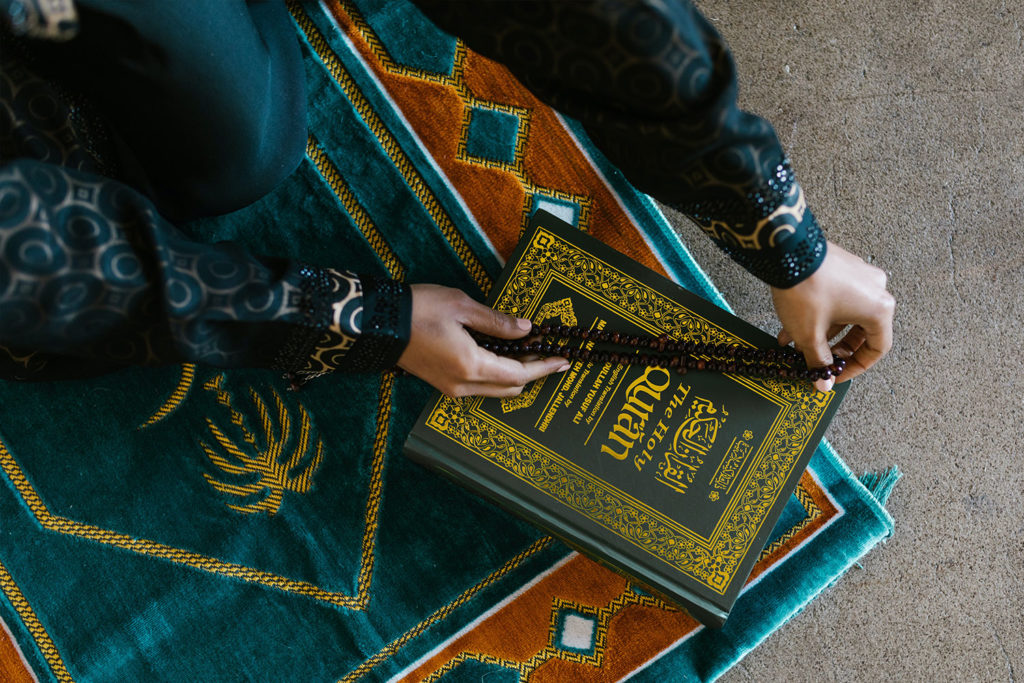By David Wood
One of the most popular arguments for Islam is what we might call the “Argument from Perfect Preservation,” which claims that, since the Qur’an has been perfectly preserved for nearly fourteen centuries, God must have been miraculously preserving it. This argument is based on a verse of the Qur’an: “We have, without doubt, sent down the Message; and We will assuredly guard it (from corruption)” (15:9).i
After quoting this verse, Muslim apologist Mazhar Kazi comments:
Muslims and non-Muslims both agree that no change has ever occurred in the text of the Qur’an. The above prophecy for the eternal preservation and purity of the Qur’an came true not only for the text of the Qur’an, but also for the most minute details of its punctuation marks as well. . . . It is a miracle of the Qur’an that no change has occurred in a single word, a single [letter of the] alphabet, a single punctuation mark, or a single diacritical mark in the text of the Qur’an during the last fourteen centuries.ii
Kazi’s claim is odd for two reasons. First, it’s certainly no miracle for a book to be preserved for fourteen centuries. The Dead Sea Scrolls, copies of the Bible, and other writings have survived longer than fourteen centuries, so Muslims can hardly appeal to preservation as proof of divine inspiration. Second, it’s simply false to say that the Qur’an has been perfectly preserved. When we turn to the early Muslim sources, we find that entire chapters of the Qur’an have been lost, that large sections of chapters are missing, that individual verses were forgotten, and that words and phrases were changed. Indeed, we know from Muslim reports that Muhammad’s most trusted teachers couldn’t even agree on which chapters were to be included in the Qur’an!
I. A BRIEF HISTORY OF THE QUR’AN
The first Qur’anic revelation came to Muhammad around the year 610. Muhammad delivered many more verses to his scribes and companions for memorization and recording over the next two decades. These verses were written on stalks of palm leaves, bones of dead animals, flat stones, and whatever else Muslims could find. There was no complete manuscript of the Qur’an during this time.
Qur’anic revelation ceased when Muhammad died. Shortly after Muhammad’s death, Caliph Abu Bakr needed to suppress a rebellion, and he sent many huffaz (people who had memorized portions of the Qur’an) to fight at the Battle of Yamama. Many of these huffaz died, and Muslim sources tell us that portions of the Qur’an were lost:
Many (of the passages) of the Qur’an that were sent down were known by those who died on the day of Yamama . . . but they were not known (by those who) survived them, nor were they written down, nor had Abu Bakr, Umar or Uthman (by that time) collected the Qur’an, nor were they found with even one (person) after them.iii
Abu Bakr decided that it was time to gather what remained of the Qur’an in order to prevent more from being lost, and he appointed Zaid ibn Thabit to this task. After Zaid completed his codex around 634 AD, it remained in Abu Bakr’s possession until his death, when it was passed on to Caliph Umar. When Umar died, it was given to Hafsa, a widow of Muhammad.
During Caliph Uthman’s reign, approximately 19 years after the death of Muhammad, disputes arose concerning the correct recitation of the Qur’an. Uthman ordered that Hafsa’s copy of the Qur’an, along with all known textual materials, should be gathered together so that an official version might be compiled. Zaid ibn Thabit, Abdullah bin Az-Zubair, Sa’id bin Al-As, and Abdur-Rahman bin Harith worked diligently to construct a revised text of the Qur’an. When it was finished, “Uthman sent to every Muslim province one copy of what they had copied, and ordered that all the other Qur’anic materials, whether written in fragmentary manuscripts or whole copies, be burnt.”iv The Qur’an we have today is descended from this codex.
II. DISPUTES AMONG MUHAMMAD’S SCHOLARS
Not all Muslims approved of the new Qur’an. Indeed, some of Muhammad’s top teachers rejected Zaid’s version.
Muhammad once told his followers to “Learn the recitation of the Qur’an from four: from Abdullah bin Masud—he started with him—Salim, the freed slave of Abu Hudhaifa, Mu’adh bin Jabal and Ubai bin Ka’b.”v Interestingly, Ibn Masud (first on Muhammad’s list) held that the Qur’an should only have 111 chapters (today’s version has 114 chapters), and that chapters 1, 113, and 114 shouldn’t have been included in the Qur’an.
Because of this (along with hundreds of other differences), Ibn Masud went so far as to call the final edition of the Qur’an a deception! He said, “The people have been guilty of deceit in the reading of the Qur’an. I like it better to read according to the recitation of him [i.e. Muhammad] whom I love more than that of Zayd Ibn Thabit.”vi
Should Muslims submit to this “deceit”? Not surprisingly, Ibn Masud advised Muslims to reject Zaid’s Qur’an and to keep their own versions—even to hide them so that they wouldn’t be confiscated by the government! He said:
“O you Muslim people! Avoid copying the Mushaf and recitation of this man. By Allah! When I accepted Islam he was but in the loins of a disbelieving man”—meaning Zaid bin Thabit—and it was regarding this that Abdullah bin Mas’ud said: “O people of Al-Iraq! Keep the Musahif that are with you, and conceal them.”vii
But Ibn Masud wasn’t the only one of Muhammad’s trusted teachers who disagreed with Zaid’s Qur’an. Ubayy ibn Ka’b was Muhammad’s best reciter and one of the only Muslims to collect the materials of the Qur’an during Muhammad’s lifetime. Yet Ibn Ka’b believed that Zaid’s Qur’an was missing two chapters! Later Muslims were therefore forced to reject some of Ibn Ka’b’s recitation:
Umar said, “Ubayy was the best of us in the recitation (of the Qur’an), yet we leave some of what he recites.” Ubayy says, “I have taken it from the mouth of Allah’s Messenger and will not leave it for anything whatever.”viii
Due to these disputes among Muhammad’s hand-picked reciters, Muslims are faced with a dilemma. If Muslims say that the Qur’an we have today has been perfectly preserved, they must say that Muhammad was horrible at choosing scholars, since he selected men who disagreed with today’s text. If, on the other hand, Muslims say that their prophet would know whom to pick when it comes to Islam’s holiest book, they must conclude that the Qur’an we have today is flawed!
III. MISSING CHAPTERS
Simply knowing the facts about such disputes is enough to dismiss the claim that the Qur’an has been perfectly preserved. Nevertheless, we may go further by briefly considering certain other problems.
When Ibn Umar—son of the second Muslim caliph—heard people declaring that they knew the entire Qur’an, he said to them: “Let none of you say, ‘I have learned the whole of the Koran,’ for how does he know what the whole of it is, when much of it has disappeared? Let him rather say, ‘I have learned what is extant thereof.’”ix
One of Muhammad’s companions, Abu Musa, supported this claim when he said that the early Muslims forgot two surahs (chapters) due to laziness:
Abu Musa al-Ash’ari sent for the reciters of Basra. They came to him and they were three hundred in number. They recited the Qur’an and he said: You are the best among the inhabitants of Basra, for you are the reciters among them. So continue to recite it. (But bear in mind) that your reciting for a long time may not harden your hearts as were hardened the hearts of those before you. We used to recite a surah which resembled in length and severity to (Surah) Bara’at. I have, however, forgotten it with the exception of this which I remember out of it: “If there were two valleys full of riches, for the son of Adam, he would long for a third valley, and nothing would fill the stomach of the son of Adam but dust.” And we used to recite a surah which resembled one of the surahs of Musabbihat, and I have forgotten it . . .x
This shows that entire chapters of the Qur’an were forgotten.
IV. MISSING PASSAGES
We know further that large sections of certain chapters came up missing. For instance, Muhammad’s wife Aisha said that roughly two-thirds of Surah 33 was lost:
A’isha . . . said, “Surat al-Ahzab (xxxiii) used to be recited in the time of the Prophet with two hundred verses, but when Uthman wrote out the codices he was unable to procure more of it than there is in it today [i.e. 73 verses].”xi
According to Aisha, the collectors simply couldn’t find all of Surah 33. Why not? As we’ve seen, many huffaz were killed at the Battle of Yamamah. Apparently, no one who knew the entire chapter survived.
V. MISSING VERSES
Aisha also tells us that individual verses of the Qur’an disappeared, sometimes in quite comical ways:
It was narrated that Aishah said: “The Verse of stoning and of breastfeeding an adult ten times was revealed, and the paper was with me under my pillow. When the Messenger of Allah died, we were preoccupied with his death, and a tame sheep came in and ate it.”xii
The verses on stoning and breastfeeding an adult ten times are not in the Qur’an today. Why? Aisha’s sheep ate them.
VI. MISSING PHRASES
Since entire chapters, large portions of chapters, and individual verses of the Qur’an were lost, it should come as no surprise that short phrases were forgotten as well. Let’s consider two examples.
First, Surah 33:6 declares that “The Prophet is closer to the Believers than their own selves, and his wives are their mothers.” However, Ubayy ibn Ka’b and other early Muslims held that a phrase (“and he is a father of them”) is missing from this verse. Even the great translator Yusuf Ali admits this in his commentary. Ali writes: “In some Qira’ahs, like that of Ubayy ibn Ka’ab, occur also the words ‘and he is a father of them,’ which imply his spiritual relationship and connection with the words ‘and his wives are their mothers.’”xiii It seems that Muslims have been left with an incomplete verse.
Second, if we open a modern edition of the Qur’an, we find that Surah 2:238 commands Muslims to “Guard strictly your (habit) of prayers, especially the Middle Prayer; and stand before Allah in a devout (frame of mind).” According to Aisha, however, Muhammad recited this verse as follows: “Guard strictly (the five obligatory) prayers, and the middle Salat, and Salat Al-Asr. And stand before Allah with obedience.” Hence, the phrase “and Salat Al-Asr” is missing from modern editions.
VII. ASSESSMENT
Obviously, the Qur’an has changed significantly over the years. The evidence shows that entire chapters were lost, that large sections of chapters came up missing, that individual verses were forgotten, and that phrases have been left out. Muhammad’s best teachers and reciters couldn’t even agree on which chapters were supposed to be in the Qur’an.
This raises an obvious question. What’s the difference between a book that’s been perfectly preserved, and one that hasn’t been perfectly preserved? If Muslims are right, there’s no difference at all. The typical characteristics of a book that hasn’t been perfectly preserved are (1) missing phrases, (2) missing passages, (3) missing chapters, (4) disagreements about what goes back to the original, etc. But the Qur’an has all of these characteristics. Thus, Muslims who are aware of the evidence but who also want to maintain perfect perseveration of the Qur’an must say something like this: “Yes, the Qur’an has all the characteristics of a book that hasn’t been perfectly preserved, but it’s been perfectly preserved anyway.” Can anyone make sense of such a claim?
It’s clear, then, that the Argument from Perfect Preservation fails, and that Muslims who want evidence for their faith will have to look somewhere other than the preservation of the Qur’an.
i All Qur’an quotations are taken from Abdullah Yusuf Ali, The Meaning of the Holy Qur’an (Beltsville: Amana Publications, 1989).
iiMazhar Kazi, 130 Evident Miracles in the Qur’an (Richmond Hill: Crescent Publishing House, 1997), pp. 42-43.
iiiIbn Abi Dawud, Kitab al-Masahif.
ivSahih al-Bukhari 4987.
vSahih al-Bukhari 3808.
viIbn Sa’d, Kitab al-Tabaqat al-Kabir, Vol. 2, p. 444.
viiJami At-Tirmidhi 3104.
viiiSahih al-Bukhari 5005.
ixAbu Ubaid, Kitab Fada’il-al-Qur’an.
xSahih Muslim 2286.
xiAbu Ubaid, Kitab Fada’il-al-Qur’an.
xiiSunan Ibn Majah 1944.
xiii Abdullah Yusuf Ali, The Meaning of the Holy Qur’an, Note 3674.
Published March 30, 2016




